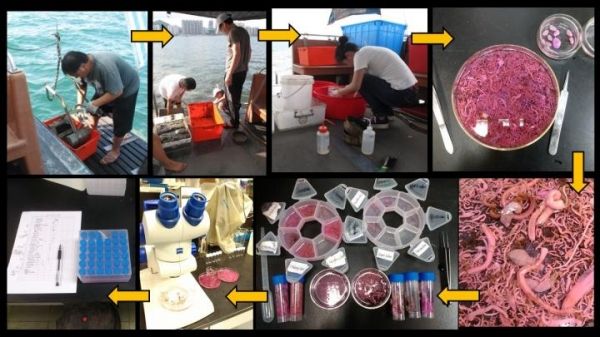Biodiversity is of crucial importance to the marine ecosystem. The prohibition of trawling activities in the Hong Kong marine environment for two and a half years has significantly improved biodiversity, an inter-university study led by City University of Hong Kong (CityU) has found. Research results showed that the trawl ban could restore and conserve biodiversity in tropical coastal waters.
The research team was led by Professor Kenneth Leung Mei-yee, CityU’s Director of the State Key Laboratory of Marine Pollution (SKLMP) and Chair Professor in the Department of Chemistry. The findings were published in the journal Communications Biology, titled “Recovery of tropical marine benthos after a trawl ban demonstrates linkage between abiotic and biotic changes”.
Trawling captures animals of all sizes
Trawling is the practice of dragging fishnets across the seabed to sweep up fishes. “Trawlers capture animals of all sizes and cause severe damages to the seabed. Also, trawling raises plumes of sediment from the seabed and induces their suspension in the water. Therefore, organisms living on the seabed which feed on those sediments would be lack of food, and biodiversity loss has resulted,” said Professor Leung.
Read more at: City University of Hong Kong
The photo at the bottom right-hand corner shows the benthic organisms collected in Hong Kong waters. (Photo Credit: CityU's State Key Laboratory of Marine Pollution)


